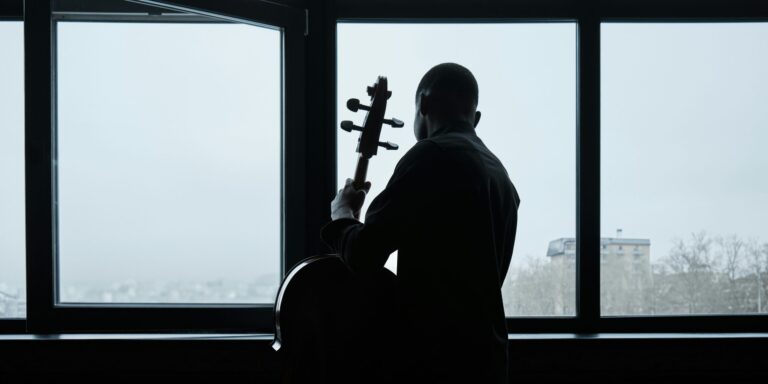As we kick off 2024, Artificial Intelligence (AI) continues to disrupt various industries, and music is no exception. From AI-generated compositions to songwriting assistance, this powerful technology is increasingly embedded in the music creation process. But what does this mean for human musicians?
The Rise of AI in Music Creation
The music industry has witnessed a transformative shift in recent years with the rise of AI tools. AI has already shown its potential in assisting music creators by generating original compositions, suggesting melodies, and even writing lyrics. Tools like OpenAI’s MuseNet and Google’s Magenta are just the tip of the iceberg. These platforms are enabling musicians to explore a new realm of possibilities, providing quick prototypes, breaking creative blocks, and offering fresh ideas. For musicians facing the infamous curse of writer’s block, AI tools have become a reliable ally, generating instrumental tracks or suggesting chord progressions that spark new inspiration.
AI’s ability to analyze vast amounts of music data—from classical symphonies to modern pop hits—means it can replicate various styles, genres, and compositions with impressive accuracy. Some creators have embraced this as an exciting opportunity for exploration and artistic expansion. Musicians can experiment with unique sounds or push genre boundaries in ways that were previously time-consuming or expensive.
In fact, AI-generated music already has a footprint in various corners of the entertainment industry. Movies, video games, advertisements, and even TikTok influencers are increasingly using AI music to enhance their content. For producers and composers, AI can handle the heavy lifting of certain tasks, allowing them more time to focus on the core aspects of creativity.
The Downside: Is Human Creativity at Risk?
While the potential benefits of AI in music creation are undeniable, the rise of AI-generated music is not without its challenges. For many musicians, the idea of a machine composing music raises a serious concern about the value of human artistry. AI tools are often trained on vast datasets of pre-existing music, which means they can inadvertently reproduce patterns or sounds that are overly familiar or derivative. The question arises: can a machine truly capture the emotional depth and complexity that defines human-created music?
One of the key critiques surrounding AI-generated music is that it lacks the “soul” of human expression. Music is often deeply tied to personal experiences, emotions, and cultural context—elements that machines, regardless of how advanced, cannot fully understand. AI is unable to experience joy, sorrow, or heartbreak, emotions that fuel many of the most memorable songs in history. It simply processes data and patterns, creating compositions that may sound pleasing but fail to stir the same emotional response.
Moreover, the growing presence of AI in music raises concerns about the commercialization of art. Some musicians fear that the mass production of AI-generated music could lead to a homogenized soundscape, where everything sounds the same, and distinct individual voices are drowned out. With the ability to create countless tracks at lightning speed, AI could dominate the industry, leaving human musicians competing for attention in a saturated market.
AI’s Role as a Creative Tool, Not a Replacement
Despite these concerns, the solution does not necessarily lie in rejecting AI altogether. Instead, musicians can use AI as a powerful tool to amplify their creativity. When approached with caution and intention, AI can enhance the human element rather than replacing it.
For instance, AI tools can assist with specific aspects of the music-making process, such as mixing or mastering, allowing artists to focus more on their creative vision. It can also open new doors for collaboration. Musicians who may not have formal training in music theory can now use AI to create compositions that were once out of reach. In this sense, AI is a means of leveling the playing field for emerging artists and democratizing music production.
AI’s role in music should not be seen as a threat, but as a partner that can offer new ideas and possibilities. It’s important to recognize that AI lacks the depth of human experience—the memories, struggles, and stories that make music a profound form of art. These qualities will continue to distinguish human-created music and ensure that it remains relevant and valuable.
A Balanced Future: The Harmony Between Humans and Machines
As 2024 unfolds, it is crucial for musicians to engage with AI responsibly. Rather than letting AI dominate the creative process, musicians should embrace it as a tool for augmentation—one that can help spark ideas, suggest creative directions, or even speed up the production process. The true power of AI lies in its ability to work alongside humans, not replace them.
The future of music creation will likely involve a harmonious partnership between human talent and AI technology. While AI may play a larger role in the industry, it’s important to remember that the essence of music—its emotional resonance and the connection it fosters between people—will always be deeply human.
In the end, AI can help us uncover new dimensions of creativity, but the soul of music will remain rooted in human connection and experience—something no machine can replicate.


